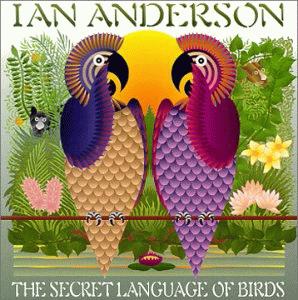
| Artist: | Ian Anderson |
| Title: | The Secret Language of the Birds |
| Released: | 2000 |
| Label: | Roadrunner Records |
| Time: | 53:51 |
| Producer(s): | Ian Andreson |
| Appears with: | Jethro Tull, Man-Doki |
| Category: | Pop/Rock |
| Rating: | *********. (9/10) |
| Media type: | CD |
| Purchase date: | 2000.03.13 |
| Price in €: | 17,08 |
| Web address: | www.j-tull.com |